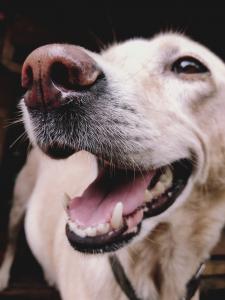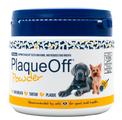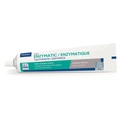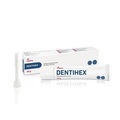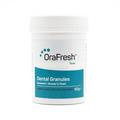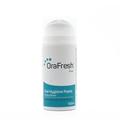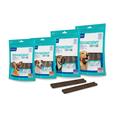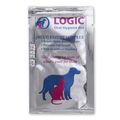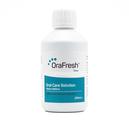Dental disease in dogs is a growing problem. In fact, it is estimated that 70% of dogs (and cats) will have the beginnings of dental disease before they are even two years old. This is a worrying statistic and one that needs to be taken seriously.
“Plaque is a build-up of bacteria on the teeth and gums, and these bacteria can easily enter the bloodstream through the gums. In fact, dogs with stage 3 and 4 periodontal disease (moderate/severe plaque build-up and gingivitis) have been shown to have underlying organ damage secondary to this” says VioVet vet, Nick.
The problem could be due, in part, to the diet of domesticated dogs today. A diet which is very far removed from the diet they have naturally evolved to eat.
Is a raw diet more beneficial?
The benefits of a raw diet are fiercely debated by those in favour and those against it. It is important to stress the value of doing your own research and speaking to your vet before embarking on a raw food journey, as the raw diet isn’t for every dog and there may be a reason why your vet advises against it.
When looking at the evolution of dogs and the diet they originally would have eaten compared to their diet now, it’s not hard to see why dental disease might be a product of the modern world and its feeding practices. While feeding raw is believed to benefit dental health, it is important to note that this is not proven.
Why might it help?
Unlike kibble which is never fully chewed, raw meat and bones require extensive chewing which helps strength the teeth and cleans them with its abrasive action.
Raw foods are also free from synthetic ingredients and unnatural starches and sugars that help promote bacterial growth in the mouth. Starch sticks to the teeth, in turn promoting the formation of tartar and plaque. The process of gnawing raw meaty bones can help alleviate these issues.
Instead of the synthetic ingredients found in some commercial diets, raw diets are packed with naturally occurring enzymes which help to protect the teeth and gums. For this reason, many pet parents are making the switch to a diet that is exclusively raw, or trying to incorporate more raw components such as meaty bones and poultry necks etc – which are thought to act like a toothbrush in removing bacteria and debris from the mouth.
What should I do next?
Ideally, you should be brushing your dog's teeth regularly, or using a no-brush alternative such as our OraFresh range. Dental chews and toys can also really help, as can specially formulated dental treats. As ever, if you are worried about your dog's dental health, your vet should always be your first port of call. Yearly dental check-ups are fundamental in spotting problems early.
If you are interested in including more raw components into the diet or switching completely, you can find all our options here.
Written by: Hannah
